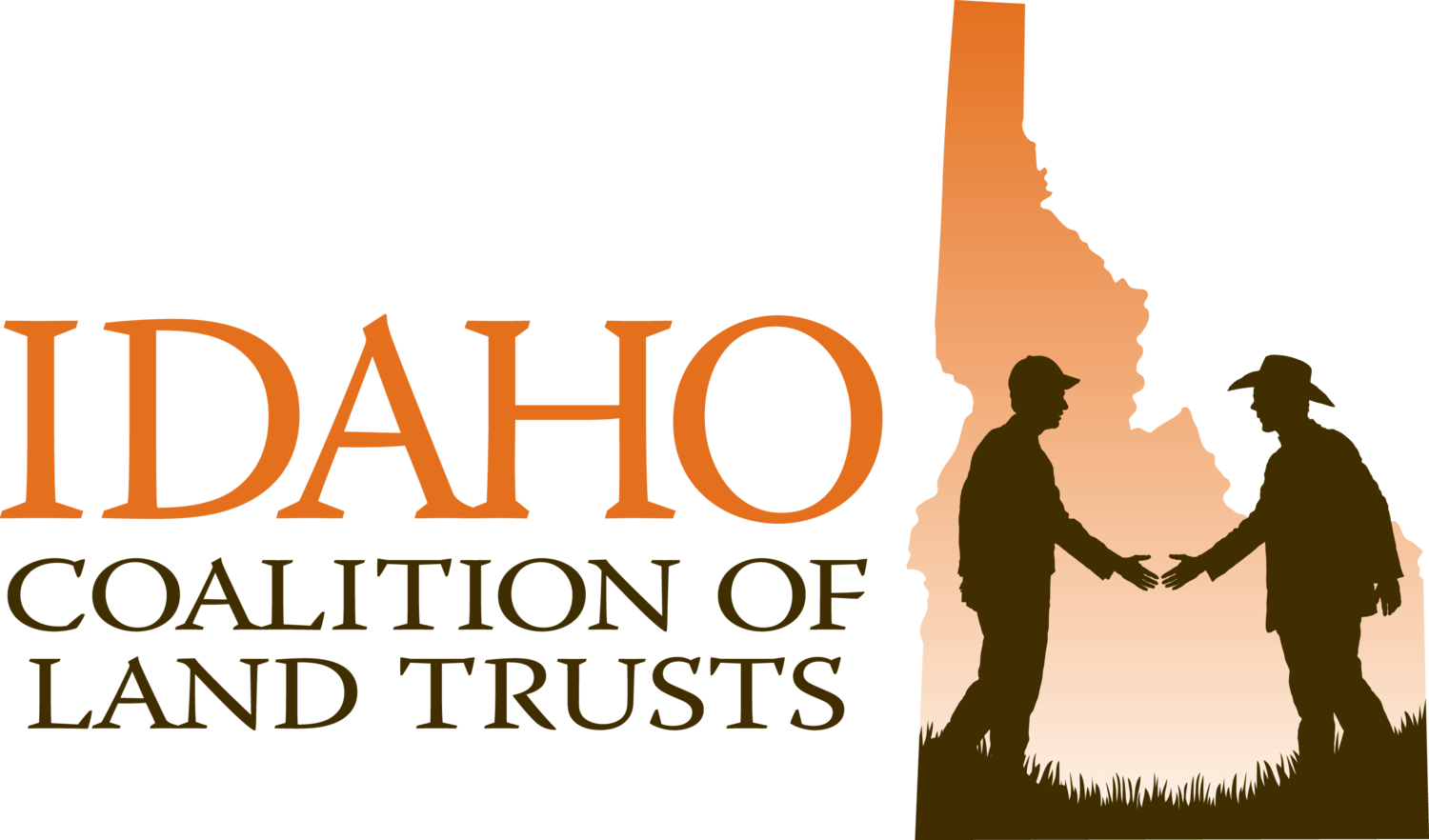Some TAX implications
This is not a complete list of the tax implications of a conservation easement. Interested landowners should contact their local land trust and legal and accounting professionals listed online (by region) at Idaho LandCAN.
The donation of a conservation easement that permanently protects important conservation resources and meets other federal tax code requirements may qualify as a tax-deductible charitable donation. For a conservation easement gift to qualify as a tax-deductible donation, it must accomplish at least one of these three conservation purposes:
Preservation of open space (including farmland, ranchland and forestland)
Preservation of a relatively natural habitat for fish, wildlife or plants, or
Preservation of lands for education or outdoor recreation of the general public.
A landowner can elect to sell, rather than donate, the conservation easement to the land trust. Usually such sales are called bargain sales, that is, the landowner sells the conservation easement to the land trust at a price below the appraised fair market value of the property. The difference between the fair market value and the bargain sale price may allow the landowner to claim a charitable income tax deduction.
Also, in Idaho many lands under conservation easements are eligible for a property tax exemption called the Wildlife Habitat Exemption. Certain requirements apply, including that the land in question was covered by an Agricultural Exemption (see Idaho Code 63-604) for at least three preceding years. To learn more about the eligibility for the Wildlife Habitat Exemption, click here.
Estate Tax Reduction
One of the most important tax benefits of a conservation easement is the effect the conservation easement may have on the underlying market value of the land subject to the easement. Since a conservation easement permanently removes some of the land’s development potential, the easement typically reduces the property’s market value and thus the potential estate tax. This can be essential for passing land on to the next generation. Whether the easement is donated during life or by a will, it can make a critical difference in keeping land in the family.
We encourage landowners to consult their attorney or tax advisor to fully explore the estate and income tax benefits associated with the charitable donation of a conservation easement.
LIKE-KIND LAND EXCHANGE
Some landowners can take advantage of a like-kind land exchange (also called a 1031 exchange, after the federal code section governing such transactions) as part of a conservation easement bargain sale. Generally, if a landowner sells a conservation easement, he or she will owe taxes on the income received from the transaction. By using a 1031 exchange, a landowner may be able to defer taxes if he or she exchanges a conservation easement for other land. For example, a rancher may exchange a conservation easement on his or her ranch for an additional piece of ranchland without triggering tax.
A 1031 exchange must satisfy certain requirements before it can qualify for this tax benefit. Most importantly, the properties involved must be held for investment or for the productive use in a trade or business, such as agriculture. We encourage landowners to consult their attorney or tax advisor to fully explore the tax benefits associated with a 1031 exchange. To read the federal code section describing 1031 like-kind land exchanges, click here.
Again, this is not by any means a complete list of the tax implications of conservation easements. Interested landowners are encouraged to contact their local land trust and legal and accounting professionals listed online (by region) at Idaho LandCAN.
